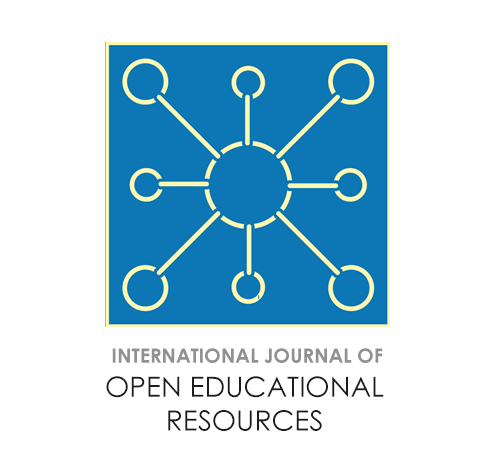
AI and the Future of Education:
Disruptive Teaching and Learning Models
Previous Program Recording:
2024
AIMS AND SCOPE:
The Policy Studies Organization, and the American Public University System’s Journal of Online Learning, Research, and Practice (JOLRAP) and the International Journal of Open Educational Resources (IJOER), jointly present the first virtual conference with a focus on AI’s disruptive, transformative, and evolving role in higher education. The two-day inaugural conference will convene virtually Thursday, August 1 – Friday, August 2, 2024 to allow for interactive presentations and discussions on the topic “AI – The Future of Education: Disruptive Teaching and Learning Models.”
The Policy Studies Organization publishes 38 academic journals, several with 19th-century antecedents, as well as about 160 books a year through its Westphalia Press, and hosts 11 international conferences. In longstanding cooperation with the American Public University System, it cooperates in six of these academic journals as well as in conferences like the AI. Its internet programs include conferences at Sydney and Oxford. See https://www.ipsonet.org/
With the rapid evolution of AI tools, such as the chatbot ChatGPT, we’d like to provide professors, academic leaders, researchers, librarians, curriculum designers, journal editors, and graduate students with opportunities to share knowledge, challenge norms, and contribute unique perspectives. This conference is seeking presentations that involve the audience and foster conversations that will help redefine educational frameworks related to teaching, learning, assessment, leadership, curriculum, and research. We will explore ethical and equity implications of AI in academia and reimagine the future of education.


CONFERENCE STRANDS:
Leveraging AI
This strand focuses on positive and innovative ways to leverage AI in teaching, learning, assessment, curriculum, research, and creative works. Submissions to this strand should address topics such as effective ways to integrate AI into courses, publications, OERs, etc. and benefit students, educators, and authors. Special consideration will be given to proposals that focus on providing students with workplace skills.
Ethics and AI
This strand focuses on ethical challenges associated with generative AI in teaching, learning, assessment, curriculum, research, and creative works, to name a few. Submissions to this strand should address topics such as considerations for arts-based assignments, professional and academic writing, curriculum design, and debatable applications of AI in teaching, learning, research, and OERs.
Accessibility and AI
This strand focuses on practices of increasing access to AI through curriculum design, teaching and learning, diversity/equity/and inclusion (DEI), and open educational resources. Submissions to this strand should address topics such as social and economic factors, open educational practices, effects on the digital divide, policies, 21st century skills needed for workplace barriers, Universal Design, access to technology, etc.
TO SUBMIT A PROPOSAL:
Please include a title and approximately 1–2 pages of double-spaced overview into your proposal. Follow current APA style. Proposals will be peer-reviewed. Indicate which (1) strand and; (2) presentation format is preferred. Describe interactive elements that will be included in your presentation. Each session/format will include one person to monitor technical logistics and one person who will moderate. Formats include:
Format 1: Traditional Presentation – 45 minutes – to include 30 minutes of presentation time (consider interactive elements) with 15 minutes allotted for interactive discussion and Q&A. Must include a PowerPoint or a similar multimedia presentation.
Format 2: Poster Session – 45 minutes – to include an interactive multimedia poster, animated graphic/video, a series of images with or without sound. Presenters should interact with the audience throughout the session. This should be lively and fun!
Format 3: Panel Structure – 45 minutes – to include approximately 30 minutes of panel presentations that are interactive with a minimum of three panelists. Panelists should have strong subject matter expertise in the topic(s) and invite critical dialogue among the participants. While a PowerPoint is not needed, some type of visual representation should be included to support the key points of the panelists’ discussion. There should be approximately 15 minutes left for open discussion between panelists and audience members.
Format 4: Round Table – 45 minutes – to include a 10-minute overview which will be followed by breakout rooms. The rooms will be created based on the number of participants (e.g., approximately 5-8 people per breakout room). Each breakout room will have approximately 25 minutes for discussion. The presenter should have a handout or visuals to guide the interactive discussion on the topic. This should be a highly interactive session. Ten minutes will be structured at the end for breakout round tables to return and share discoveries and summaries with exploration of common and new themes.
Proposal Requirements
- One to two pages in current edition APA Style
- No abstract is required
- Include a description of the topic, highlighting its importance and relevance in relation to the selected conference strand
- Include a paragraph describing the preferred presentation format and how the session will be interactive
- Include information about any technological support needed
Proposals Should:
- be clear, concise, and strongly aligned with the conference theme.
- clearly indicate the desired format for the presentation (e.g., session, poster, panel, or roundtable)
- emphasize the interactive elements to ensure that the audience is engaged
Format:
All submissions must be in English.
If using AI or a Large Language Model for any part of the presentation, properly acknowledge the use of this technology and cite in accordance with APA Style. For example, to cite and reference ChatGPT visit https://apastyle.apa.org/blog/how-to-cite-chatgpt .
Please follow the conference template, available for download from this conference website.
Questions:
For questions, please contact JOLRAP-IJOERConference@ipsonet.org
We look forward to your submissions and your contribution to making this inaugural conference a success.
Kathleen J. Tate, Ph.D., Editor-in-Chief, JOLRAP
Ronald C. Johnson, Ph.D., Co-Editor, IJOER
Linda Ashar, JD, Co-Editor, IJOER

